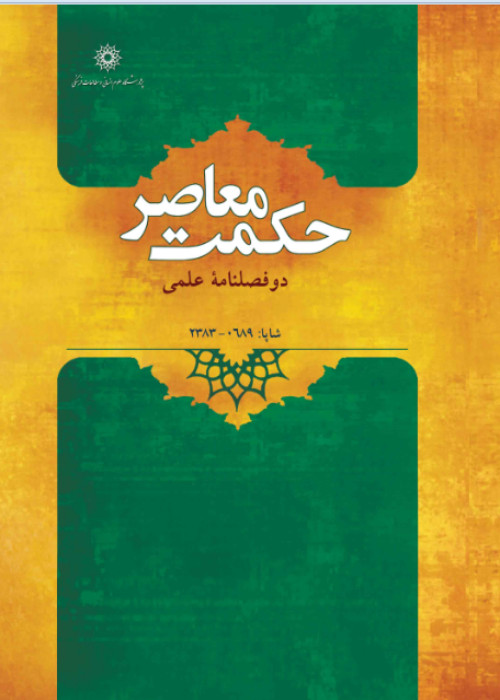Textual criticism and verification ofThe Essay “al-Jumal fi-l-Manṭiq” [The Outlines in Logic] by Afḍal al-Dīn Khūnajī
Afḍal al-Dīn Muḥammad in Nāmāvar Khūnajī (d. 1248/646 AH) was a 13th-century logician who wrote eminent logical works such as Kashf al-Asrār ‘an Ghawāmiḍ al-Afkār [Uncovering the Secrets from Abstruse Thoughts], al-Mūjaz fi-l-Manṭiq [The Succinct in Logic], and al-Jumal fi-l-Manṭiq [The Outlines in Logic]. This paper is concerned with textual criticism and verification of the latter essay. Although Kashf al-Asrār is Khūnajī’s most important work, it does not obviate our need to other works by him. It is, therefore, necessary to provide a refined text of these works, including his al-Jumal. This succinct essay counts as an abstract of Kashf al-Asrār, and was taught as a textbook for a long time. As evidence for the significance of the essay, it should suffice that several commentaries and expositions were written for it. The essay involves Khūnajī’s own views in Kashf al-Asrār as well. In my textual criticism of the work, I have relied on four manuscripts and one printed edition deploying the intermediary method (between copy-text editing and eclecticism) in order to provide scholars of logic with a refined text of the work. The significance of al-Jumal is attested by the fact that it was taught as part of the curriculum in northwestern Africa, and many expositions were written for it in this region. Although Khūnajī’s innovative ideas appears in his elaborate book, Kashf al-Asrār, a comparison between the two works reveals that the former is indeed an extended abstract of the latter. In fact, al-Jumal contains everything that appears in Kashf al-Asrār except for certain elaborations and objections raised by Khūnajī to others. Al-Jumal involves Khūnajī’s own views as well. Therefore, al-Jumal is a very succinct essay on important logical issues, serving as an introduction to logic and the rules of accurate thinking. It only includes the issues of definition and syllogism as part of arguments. In this essay, the author embarks on the core logical rules without going into preliminaries and without engaging in controversial problems. The method of textual criticism and an introduction of the manuscripts and copies: in the textual criticism of this book, I have deployed the “intermediary” method, relying on the following manuscripts:Two original manuscripts of al-Jumal both of which are close to the author’s time, and two other manuscripts of expositions of al-Jumal. “M”: the manuscript in Malek National Library, associated with Astan Quds Razavi, in microfilm no. 640, written between 1258 (657 AH) and 1268 (667 AH), and as it seems, it was proof-read by Khwāja Naṣīr al-Dīn al-Ṭūsī. “Q”: a manuscript of Jumal al-Qawā‘id [Outlines of the Rules] in Central Library of Astan Quds Razavi, no. 981. It was written in 1341 (742 AH) in Mecca. The manuscript is stamped as “precious.” “Sh”: a manuscript of Sharḥ al-Jumal [Exposition of the Outlines]. This manuscript also belongs to Malek National Library and was written in 1320 (720 AH). “A”: This is a very elaborate exposition of al-Jumal by Sayyid Sharīf Tilimsānī under Sharḥ Jumal al-Khūnajī fi-l-Manṭiq [Exposition of Khūnajī’s Outlines in Logic]. This manuscript belongs to Fazili Library in Khansar, available in Markaz Ihya’ al-Turath al-Islami (Center for the Revival of Islamic Heritage) in Qom. I did not regard this as an important alternative copy.
- حق عضویت دریافتی صرف حمایت از نشریات عضو و نگهداری، تکمیل و توسعه مگیران میشود.
- پرداخت حق اشتراک و دانلود مقالات اجازه بازنشر آن در سایر رسانههای چاپی و دیجیتال را به کاربر نمیدهد.


